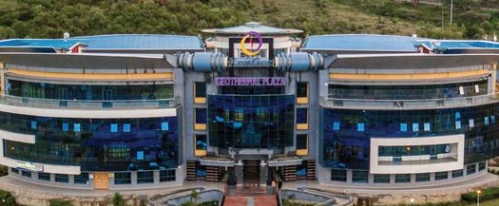The Kenya Electricity Generating Company is on the spot for sinking Ksh378 million in stalled power projects. The funds were used on feasibility studies for projects that have never taken off more than a decade ago. The National Assembly’s Public Investments Committee on Commercial Affairs and Energy decided to hold KenGen to account. KenGen’s Managing Director Peter Njenga was put to task to explain why the feasibility studies for some projects that were carried out as far back as 2012 had not commenced. Furthermore, he was asked why some were undertaken without the necessary approval from the Ministry of Energy.
The committee, chaired by Pokot South MP David Pkosing, raised the red flag over the failure by KenGen to implement these projects. The eight projects, whose feasibility studies were conducted between five to 12 years ago include the 90MW Karura hydropower plant. Its feasibility was conducted at a cost of sh163, 248,143. Furthermore, the 80MW Meru Wind Farm costed sh119.04 million and the assessment on the performance of Ngong 1 Phase 3 Wind Farm (sh20 million). Others include the 10 MW Marsabit Wind Project (sh27.9 million) and the 45.5MW 7 Forks Solar PV Plant. These are some of the projects that KenGen is being held accountable over and being asked to explain.
Also read:
Residents Demand Inclusion in Multi-Million-Dollar Menengai Geothermal Project Plans
The Next Steps in Assessing KenGen’s Stalled Power Projects
The committee has now opened a full inquiry into assessing KenGen’s stalled power projects and the circumstances. It seeks to understand how the company commissioned the feasibility studies without clear plans, land acquisition and risk assessments. The committee is seeking to know why several consultants were hired before key requirements were met. These include identifying project sites or securing land, thereby undermining the credibility and utility of the studies. Mr Pkosing directed that the company goes back and furnishes the committee with documents showing proof of studies. These includes for projects such as the Ngong Wind Power, provide the contract and tell us how many turbines are to be commissioned. They are also expected to show the cost of each turbine as directed by the Kenya Civil Aviation Authority (KCAA).

“I also direct that you provide us with the contracts and advertisements for the feasibility studies for Karura hydropower plant and the Meru Wind Phase 1 feasibility study for us to open a full inquiry.” Mr Njenga was hard-pressed to defend the feasibility studies, noting their need. He noted that the country’s energy demand is rising, hence the need for new investments. Moreover, he noted that the studies were part of long-term strategic planning and were aimed at identifying energy generation potential. “Yes, these projects are actually in the strategic plan for KenGen,” Mr Njenga said. He said projects like the proposed Meru Wind Farm were stalled due to land acquisition challenges.
Also read:
KenGen Cancels and Reopens Tender for $247.5 Olkaria VII Geothermal Plant Consultancy Work

Leave a Reply